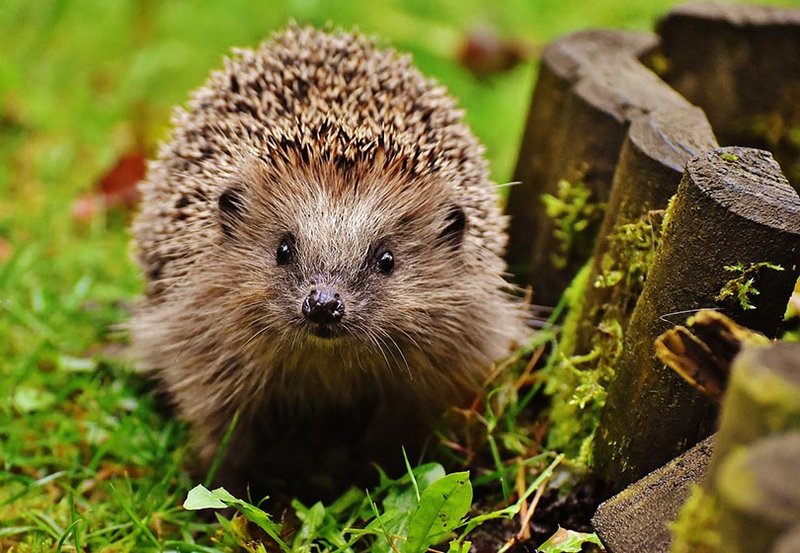
In this article, we’ll dive into some of the most common myths about hedgehogs. From their diet to their habitats, there’s a lot to unpack. Whether you’re considering adopting one, or just curious about these fascinating animals, let’s clear up some misunderstandings together. After all, knowledge is power, and understanding these little creatures can make a world of difference in how we care for them.
Myth 1: Hedgehogs Are Just Spiny Rodents
One of the first things many people think about hedgehogs is that they’re simply porcupines in miniature. However, that’s not quite right. While both hedgehogs and porcupines have spikes, they belong to different families within the animal kingdom. Hedgehogs are actually more closely related to shrews than to rodents.
Hedgehogs are unique in many ways. For instance, they can roll into a ball as a defense mechanism. When threatened, they curl up tight, with their spines sticking outwards. This is a clever survival tactic! On the other hand, porcupines can shoot their quills, which is quite different. So, while they might look similar at first glance, their behaviors and classifications tell a different story.
Myth 2: Hedgehogs Are Low-Maintenance Pets
You might be thinking about adopting a hedgehog because you’ve heard they’re easy to care for. This is a common misconception. While they don’t need as much attention as a dog, hedgehogs require specific care and an understanding of their needs.
For starters, hedgehogs are nocturnal, meaning they’re active at night and prefer to sleep during the day. If you’re considering getting one, think about how their nighttime antics may impact your household. Additionally, they require a spacious cage, a proper diet, and regular cleaning.
You’ll also need to invest time in socializing with your hedgehog to ensure it feels comfortable with you. Remember, these little guys can be shy and may not be as cuddly as you’d like them to be, especially at first. So, while they are adorable, they still come with their own set of challenges.
Myth 3: Hedgehogs Can Eat Anything
You may have heard that hedgehogs are not picky eaters, but that’s a dangerous myth. While they are omnivores, it’s crucial to provide them with a balanced diet tailored to their specific nutritional needs.
Hedgehogs require a mix of high-quality cat food, insects (like mealworms or crickets), and some fruits and vegetables. However, be cautious—some foods can be harmful. For instance, avoid chocolate, onions, and citrus fruits, as these can make hedgehogs sick.
Feeding them the wrong things can lead to obesity or other health problems. It’s essential to do your research and consult with a veterinarian specializing in exotic pets if you’re unsure what to feed your hedgehog.
Myth 4: Hedgehogs Are Dangerous and Carry Diseases
Another common belief is that hedgehogs are dangerous animals that can carry diseases transmissible to humans. While it’s true that any wild animal can carry diseases, the risk with hedgehogs is quite low, especially if they’re kept as pets in a controlled environment.
Hedgehogs can sometimes carry a parasite called *ringworm*, which can be transferred to humans, but it’s not common. Regular veterinary care and maintaining hygiene in their habitat can reduce any risk. If you adopt a hedgehog from a reputable breeder or rescue, you’re less likely to encounter health issues.
In fact, hedgehogs can be quite friendly! Many owners report that their hedgehogs enjoy being handled and even snuggle up for some quiet time. As with any pet, the key is proper care and understanding.
Myth 5: Hedgehogs Make Great Companions for Kids
You might see hedgehogs as the perfect pet for a child, but that idea can be misleading. While they are generally sweet animals, they may not be ideal for young kids. Hedgehogs are sensitive creatures that can become stressed with too much handling or noise.
They don’t enjoy being picked up very frequently and can be easily frightened. This can lead to them curling up in a ball and refusing to come out. For children, that could be frustrating. Instead, they’re better suited for older kids who can understand the importance of gentle handling and who can respect the hedgehog’s need for space.
If you’re considering a hedgehog for your family, have a conversation with your child about how to interact with the animal correctly. It’s an opportunity for them to learn responsibility, empathy, and patience.
Myth 6: Hedgehogs Don’t Need Veterinary Care
Many people think that small pets like hedgehogs don’t need regular veterinary visits. This is a flawed perspective. Just because they’re small doesn’t mean they can skip out on check-ups. Hedgehogs can suffer from various health issues, such as obesity and dental disease, just like any other pet.
Regular visits to a vet who specializes in exotic animals are vital. They can help catch any potential problems early and keep your hedgehog happy and healthy. Establish a good relationship with your vet to ensure your pet receives the best care possible.
Additionally, if you notice any changes in behavior or eating habits, don’t hesitate to reach out to a professional. It’s always better to be safe than sorry when it comes to your furry friend!
Myth 7: All Hedgehogs Are the Same
Many people assume there’s only one type of hedgehog, but that’s not the case. There are several species of hedgehogs, each with its own unique characteristics. The most common pet hedgehog is the African pygmy hedgehog, known for its small size and friendly personality.
Other species, such as the European hedgehog, are often found in the wild and have different behaviors and habitats. Each species has slightly different care requirements, and some may even have specific diet needs. So, before you decide on adopting one, do your homework about the specific species you’re interested in.
Knowing the differences can help you provide the best home for your new pet, ensuring that you meet their unique needs.
In conclusion, understanding hedgehogs involves more than just admiring their adorable looks. Separating fact from myth is essential for anyone considering them as pets or simply wanting to appreciate them in the wild. Hedgehogs are unique creatures with their own quirks and needs, and recognizing these nuances can lead to better care and a more rewarding experience for both you and your spiky friend.
By debunking these common myths, we can foster a greater appreciation for hedgehogs, ensuring they receive the respect and care they deserve. Whether you decide to welcome one into your home or simply admire them from afar, knowing more about these fascinating creatures helps us build a world where they can thrive.

